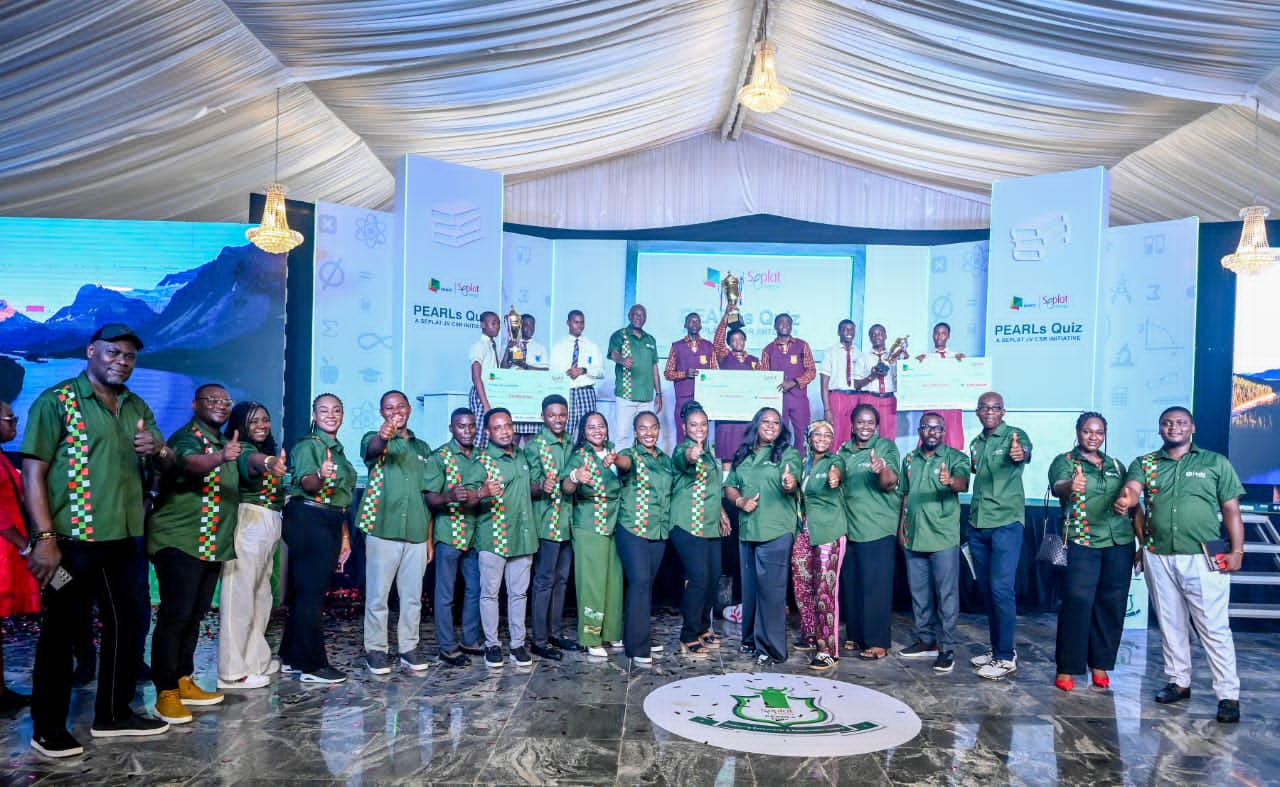
Dr. Oladele Fajemirokun, is the chairman, Henry Stephens Group Nigeria. He is the son of famous business mogul, Henry Oloyede Fajemirokun. He will launch his book titled: ‘The Making of Me: My Odyssey in Business’ at the Civic Centre Victoria Island in Lagos tomorrow, as part of the preparations for his 70th birthday anniversary. He spoke on his life and challenges facing business in Nigeria. SEYE OLUMIDE reports
Did you set out to be a businessman right from the beginning?
That is a very ticklish question. You don’t set out to be something as a baby or as a grown up. You are first born and then go to school and from there I read economics, which does not mean I set out to be a businessman. But nonetheless, I started learning trading from my university days, which I picked up from my parents because they were both traders.
Can we therefore say that you inherited that business trait more from your father?
I cannot say so, but maybe the doggedness or attitude to doing things and the courage to follow through anything that you are doing saw me through the business line. But I am not totally too different a businessman from my father. As you know, my father was a trade unionist, so he helped to build up the Nigerian Chamber of Commerce. But I totally didn’t go into that. I only made the people that worked for me, my chief executives, to join the chambers because I don’t have the kind oratory gift that he had and I discovered that early in life.
What kind of businesses are you into and what are the challenges and how did you overcome those difficulties?
With this question, you want to go into another book to be written. This is because when you are a businessman, you are to some extent an opportunist. When you get the privilege to make money, not all eyes see that opportunity but your own eyes. I don’t still believe in anybody starting any business big. It always starts small and you will nurture it to a lasting institution that will outlive you and that is where my background and education comes in, since I read business economy in school.
Did you inherit the business empire of your late father?
No. I don’t because we are 11 children and late Professor Ayo Ogunseye was his deputy and the Group Executive Director, as at the time he died. He was second to him when he died he took over from him. The late professor became the chairman and managing director when my father died. I was not in the group at that time.
At what point did you decide to write about yourself?
The title is ‘The Making of Me: My Odyssey in Business’ it contains the answers to all the questions you were asking before. The book describes me. There is a time in ones life when some people would want to know why you took certain decisions and you will need to give explanations. In most cases, the type of response to such questions requires you to go on a sober reflection as to exactly who you are. For example, seeing someone is totally different from whom the person is. There are many things about an individual that are difficult to find answers to directly, except you think deeply. For instance, you want to know what makes you a bad or good loser? A bad loser is someone who losses in business and dies. Like I teach my children that failure is not falling down, it is staying down. People must not see you on that ground.
Was your father a disciplinarian or did he pamper you?
That is one of my strong emphases in the book. Like I wrote, my parents, especially my father was an extraordinarily disciplined person. Maybe his military background added to that. I was not a particularly ‘easy child’ also, but by the way his senior brothers told me, he was like that too when he was young. He absconded from school at the age 16 to join the army when his parents thought he was dead, only to learn one year later that he was still alive. I think he saw that trait in me and he used the iron hand to really press me down even when he had nothing. We were the first four children he gave birth to inside a room in Eletuwase. He had no car and we were not born with silver spoon, so you can see what I am trying to say about my book? What people perceived of me is totally different. Immediately you entered this room, you saw his picture and recognised him and the first impression was that the son inherited his father’s wealth and it did good on me, but it is totally different.
What are those factors that accounted for your successes in business?
You must first identify what you are doing. Some mistakes many journalists do make is they call everybody a businessman; but not everybody is a businessman or an entrepreneur. It is not easy to be an entrepreneur, that is, to create wealth almost from nothing and from other people’s money, which are the bank loans and others. But people call commission agents businessmen. In fact, the majority of the top businessmen in Nigeria over the years have always been commission agents. Not the likes of Chief Adeola Odutola, my father, Keshinro and other industrialists. They never go and introduce people to government and get commission. You understand the explanation now. It is an entrepreneur trait that is inborn. I have tried to define this to many people that it is a misnomer, in fact, when I am in any immigration office and they ask what is my job, I don’t write businessman. I either write an economist or director of business. A businessman can be a cocaine pusher, smuggler and cover up as a businessman.
Could you say Nigeria has actually produced top businessmen?
Not very many and this is because government is the biggest spender. It is easy to make it big by patronizing government, by following one minister or government functionaries as a commission agent. Anyway, that is the beginning of corruption.
What is the place God and your mother in your story?
The impact of God starts from the time you were conceived in your mother’s womb. There is nothing I am today that I said I planned to be. The opportunity will come and I will build it up. But then, it now developed in my late 20s and early 30s when I realised that the way to go is to create wealth, employments to the extent that my joy and comfort actually lies in how many people I employ to work in my organisation?
I started some of these companies while other people brought the ideas of some of the companies to me and I financed it like a venture kind of capitalist. And we would build it up to a board and after a while I would resign from the company. I may still own majority of the company but I let it go to see how the company grows on its own in my lifetime it helps to see the success of the company so that individuals that are employed in the organisation would know they are not going to die there too.
My mother was a trader and my grandmother was the Iyaloja of Ondo Town, so it was a line of traders and my mother too had a store in Ondo State.
Is the current climate friendly to business?
You are going political now. But the truth is it is not friendly to business and it is well known. We are dealing with international industrialists now and I can tell you that they are jittery about the business environment in the country. But as an entrepreneur, to me, difficult times are always the best time to go into business. When the company is out of the problem, then you are ready to take advantage of the turnaround. That’s why I make sure sustainability of the company goes on while the environment is down but that the company did not die.
What makes you happy most in life?
What makes me happy most is the legacy of good name that my parents left. My mother is still alive and secondly, my immediate family. Your happiness is from home because if you are successful in building up a family, a home where the children are together you a successful parent. It gives great joy to say that the minimum degree all my children have is masters’. And they can all work anywhere in the World and their dependence on my estate or me, is zero. That was the way I was trained by my father because when he died I was not even in his company, I was in Kano State.
Behind any successful man there is always a woman…
Like I said, whatever it takes you to get a peaceful home, that peaceful family is what triggers your development faster, which of course, your next of kin in a peaceful home is your wife or your wives.
The Fajemirokun family name has not been linked with any scandalous. How did you achieve that?
There was a time I used to attend social engagements 24 years ago, but at a point I asked myself whether I am a socialite or a corporate man. I do meet people working for me at social engagements and I told myself the two did not go together. I therefore decided to choose the part of corporate life and that was what earned me the respect of banks both at home and abroad.
Do you give back to the society?
That is my most cherished silent commitment to life. I do it without any announcement.
How are you mentoring young men in business?
I believe in skilled labour and in all my organisations we spend a lot to train people. Send them to the best of training schools abroad. I believe in the richness of knowledge because, lets face it, if I have a company can I also do the work of an accountant? When you employ such professional you have to pull yourself away to allow them do the job. But then, you have to do you bit by re-investing part of the profits on the training of those that are doing the job. And I mean unending training, which is a policy in all the company I am associated with.
How comfortable are you with today’s Nigeria?
I can’t be comfortable. When I was in the university we didn’t know that we were living the best part of our lives then. When I was in the university hostels then, we didn’t understand that we were living in five stars luxury hotels compared to now. The quality of education has fallen drastically than you can imagine.






